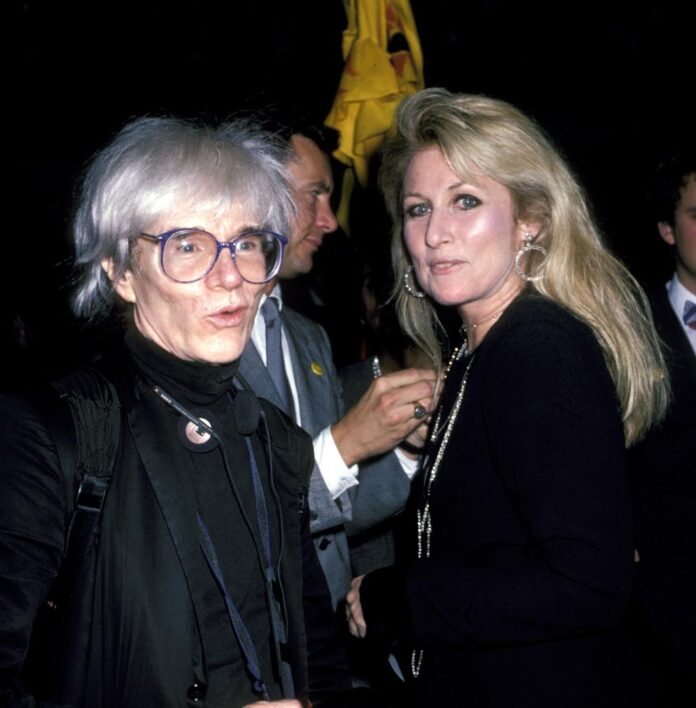When Andy Warhol met the socialite and model Jane Holzer, with her trademark cascade of long blond hair, he immediately saw superstar potential and asked her to appear in one of his films. She debuted in (1964), her alter ego “Baby Jane Holzer” was born, and the rest is history.
Now in her 80s, the Palm Beach-based Holzer has amassed a major collection of Pop art, including, of course, some of Warhol’s most iconic works. Her glamorous backstory made Holzer an ideal candidate to partner with Freeport, a new platform offering fractional investment opportunities backed by fine art, for its public launch earlier this week.
She even claims to believe that the “crowd-ownership” model offered by Freeport carries on the Pop art pioneer’s same radical spirit.

Andy Warhol, Mick Jagger (1975). Photo by Pier Marco Tacca/Getty Images.
The company’s inaugural offering was the chance for investors to buy shares of four Warhol prints: “Marilyn” (1967), “Mick Jagger” (1975), “Double Mickey Mouse” (1981), and “Rebel Without a Cause (James Dean)” (1985). (The collection is also contains work belonging to the New York art broker Michael Haber.)
Each of these works has been split into 10,000 shares, but interested buyers must commit to at least 10, so that no more than 1,000 individuals can own one of the works at the same time. This division is secured by tokens, or NFTs, on the Ethereum blockchain.
“The cost to entry is the same investment someone might make on a single Amazon order. In some cases, it’s lower than $200,” promised Freeport’s co-founder and CEO Colin Johnson. “With today’s collection launch, the true democratization of fine art can begin.”
Opportunities for fractional ownership of blue-chip works of art have existed for some years now, and the chance to get your hands on just one slice of a Warhol has been offered by Masterworks since 2021. The spring 2022 Artnet Intelligence Report analyzed this new trend for treating art explicitly like an asset class and whether buyers have much hope of cashing in.
Freeport is also working to overcome some of the stigma associated with crypto-related investments following the collapse of companies like FTX Exchange by completing a Regulation A review with the U.S. Securities and Exchange Commission. “We created a true blueprint for bringing value on-chain, safely, and legally,” said Johnson.

























